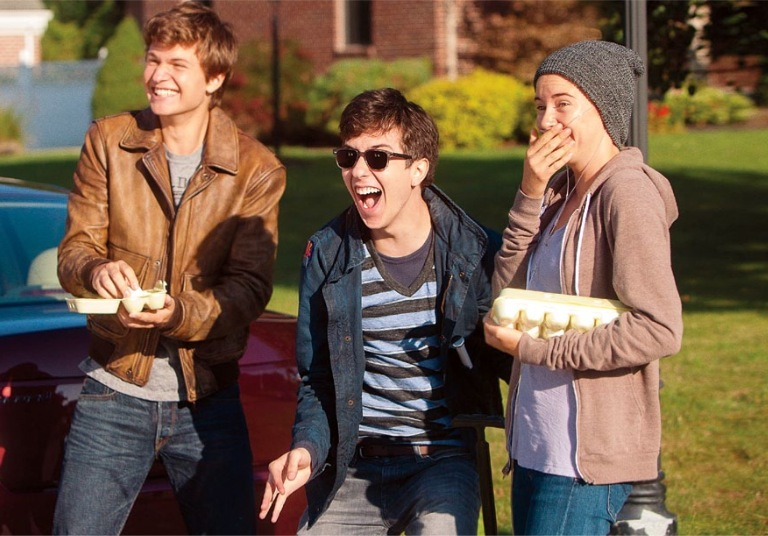“The Fault in Our Stars” deemed acceptable
June 13, 2014
“The Fault in Our Stars” (TFiOS) is a book by John Green that was released in 2012. It was taken to the screens with the movie adaptation that premiered June 6.
This book is fantastic, with a storyline that demands a ton of research and skill to be able to tell. John Green is an absolute genius. He makes his characters more human than a lot of people care to reveal. The story is about a 16 year old girl, Hazel Lancaster, who has stage four cancer in her thyroid and lungs. She goes to a Support Group and meets Augustus Waters, a 17 year old boy in remission from osteosarcoma, which has taken one of his legs as tribute. The story revolves around their “star-crossed love” and takes them all the way to Amsterdam to confront a drunken author of their favorite book. The story is hilarious yet heartbreaking, and is difficult to go through dry-eyed. I have read TFiOS a total of three times and I enjoy every word of it (though I believe John Green’s “Looking For Alaska” is better).
The movie is quite accurate, at least, as accurate as movies allow. Upon seeing it, I have to admit, the Hazel and Augustus characters that I had come to love were a little too teenager-like for my taste. Yes, I know, they are teenagers, but still. The book cuts them out to be more adult-like than most adults I know. They are very knowledgeable and I quite enjoy the aura of sophistication that they bring across. Yet, in the movie, they seem like whiny teenagers. Now, don’t get me wrong, they do use a lot of the same dialogue that John Green wrote, but they don’t say it with as much class as I expected.
That was my main problem with the movie, but there were several smaller ones that I would like to call to attention. First off, Isaac, Augustus’ friend who knew Hazel from Support Group (Isaac has rare eye-cancer that has robbed him of eyesight), was described in the book to have “straight blonde hair swept over one eye.” Well, as you can see from the photograph above, he does not have straight blonde hair, more of a curly blackness than anything. I think it would have been pretty easy to just throw some hair dye in and straighten it. Oh well. Another thing that bothered me was that they didn’t even mention Augustus’ ex-girlfriend, Caroline Mathers. Caroline suffered from a brain tumor that turned her into a truly nasty person who was very mean to Augustus, but she still mattered. I firmly believe that Caroline is an important piece of the story, and she sets up the plot very carefully. Even though during the entire novel, her character is dead, she does serve a vital role in Augustus and Hazel’s relationship.
I also noticed some random criticisms that I would like to share. First off, Hazel sleeps with her iPhone on her nightstand, but doesn’t have it plugged in. In fact, the entire movie, you don’t see the thing charge. I mean, what sort of teenager risks their phone dying? Also, when they are all (Augustus, Hazel, and Hazel’s mom) are about to leave for Amsterdam, the movie depicts Augustus riding a limousine to Hazel’s house as some sort of “grand gesture” of sorts. Well, no. The book shows Hazel and her mom going to pick up Augustus from his house only to hear a shouting match between him and his parents. This sets up a plot point later in the story that I don’t think was emphasized enough (I’m not going to say what it was as to avoid spoilers). Also, in the book, Augustus is 17. In the movie, however, his age is changed to 18. Now, I’m not sure about the reason for the change, but it seems a bit unnecessary if you ask me.
This was a good movie. It was a bit more cheesy than I had expected, but as far as movie adaptations go, this was a pretty great one. I mean, it could have been like Percy Jackson (we do not like to talk about that movie). I can say, as a reader of the book who came to the movie extremely prepared for the emotional trauma I was about to endure, I did not cry during TFiOS. I nearly did, but I avoided that train very narrowly.





